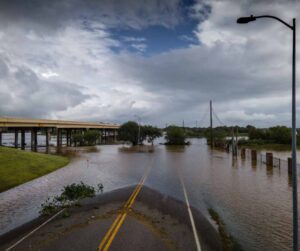An important part of the home-buying process is knowing what kinds of coverage you will need. One of the policies you may be required to purchase is hazard insurance. Although this policy is commonly required, many people don’t understand why they may need it. In this blog, we’ll cover everything homeowners should know about hazard insurance on a mortgage.
What Is Hazard Insurance?
Hazard insurance protects your home from natural disasters or hazards. This could include fires, lightning, severe wind and rainstorms, hail, sleet, and other natural events. It is a protective measure to prevent homeowners from carrying the entire financial burden of repairing or rebuilding their home in case of unforeseen events or accidents. Hazard insurance is often a subsection of a homeowners insurance policy that covers the main dwelling and other nearby structures, such as a garage.
What Is Hazard Insurance On A Mortgage?
When you opt for a mortgage, your lender wants assurance that their financial stake in your property is protected. Since the house serves as collateral for the mortgage loan, any damage to the home could reduce its value, endangering the lender’s investment.
Most lenders make hazard insurance on a mortgage mandatory for borrowers before finalizing the process. This way, in the event of a disaster, there are means to restore the property and maintain its value.
How Much Coverage Do You Need?
The right amount of coverage will depend on the cost of rebuilding your home, rather than its market value. This is an essential distinction since market value takes into account land value, location, and other factors unrelated to the cost of reconstruction. It’s best to consult with a professional to get an accurate estimate of rebuilding costs.
It’s a good idea for homeowners to consider additional coverages based on the location and condition of your property. For example, basic hazard insurance won’t cover damages resulting from floods, so you’ll need separate insurance if your home is located in a flood zone.
Premiums, Deductibles, and Claims: Explained
Premiums: The amount you pay for hazard insurance on a mortgage can vary based on your home’s location, age, coverage amount, and other factors. Often, homeowners incorporate these premiums into their monthly mortgage payments, and the lender pays the insurance bill from an escrow account.
Deductibles: This refers to the out-of-pocket amount you agree to pay before your insurance covers the remaining costs of a claim. A higher deductible generally results in a lower premium, but it also means higher out-of-pocket costs during a claim.
Claims: In case of damage, you’ll file a claim with your insurance provider detailing the extent of the damage and the cause. After verification, the insurance company compensates you or the contractor directly for the repair costs.
It’s important to understand the specific terms of your policy because not all damages might be covered. As with all insurance policies, it’s a good idea to periodically reassess your hazard insurance. Reconstruction costs might increase over time, or you might make significant improvements to your home.
Hazard insurance on a mortgage protects both you and your lender’s interests. By investing in the right coverage, you can keep your most significant asset safe.
Experts In Real Estate Law
Seeking more personalized guidance? Navigating real estate and its legal facets can be tricky. With a specialization in real estate law, DaMore Law offers clarity, expert guidance, and peace of mind. Contact us to schedule a consultation.

